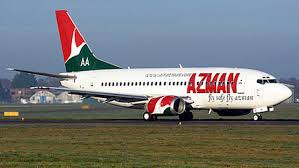Abuja Declaration: Political success in Africa- IATA DG
The director general and chief executive officer of the International Air Transport Association, IATA, Tony Tyler has disclosed that the Abuja Declaration was a political success in Africa.
Tyler who spoke at the IATA Ops Conference event in Copenhagen, Denmark on Monday April 18th with the theme: ‘Managing Operations in a Changing World’ noted that the body working as a united industry captured the attention of the continent’s governments as they committed to achieving world-class safety using a number of means, including IOSA.
Tyler disclosed that the accident rate in sub-Saharan Africa has improved significantly.
According to him, In 2010 the continent’s jet hull loss rate was 8.7 per million flights. But the average for the 2010-2014 period was 3.69. And this is particularly true for sub-Saharan carriers on the IOSA registry whose jet hull loss rate over the period was 0.62.
He stated that the problems of safety in Africa have not been solved.
Tyler said: “Working in partnership we need to help the continent’s governments improve oversight, adopt IOSA and upgrade infrastructure. The technical to-do list is very clear. And we need to continuously remind states of their Abuja commitments. And similarly, it is equally important that our friends in Europe recognise improvements and so refine the list of banned carriers”.
He explained that the theme is a subject that should resonate within the industry in view of the dramatic and sometimes tragic events that have challenged aviation in recent times.
The IATA DG urged aviation stakeholders to take advantage of the numerous opportunities to communicate with policy makers on developments that are vital to enabling aviation to support economic growth and job creation.
He outlined the areas to include Infrastructure, Regulation and Emerging Safety Challenges.
“There is no question that we are adept at talking to each other and making our views known on the technical ins and outs of things like Performance-Based Navigation, and Required Navigation Performance. We’ve been less successful in advocating with politicians who ultimately control the purse strings for essential infrastructure investments and structural changes,” said Tyler.
He stated that global standards are vital to sustaining safety improvements, adding that this is shown in the performance of airlines on the IATA Operational Safety Audit (IOSA) registry.
” Last year the total accident rate (all aircraft types) for IOSA-registered carriers was nearly three times as good as the rate for non-IOSA carriers (1.14. vs. 3.23); and over the five years 2010-2014, the rate is more than three times better (1.48 v s. 4.99)”, Tyler said.
He added that IATA and TRAFI, the Finnish Transport Safety Agency, will sign a memorandum of understanding today to use IOSA as a tool to complement their oversight of the Finnish operators.
IATA DG maintained that this will reduce redundant audits while maintaining adherence to the global standards and recommended practices that are the basis of IOSA, “as Finland will become the first but I hope not the only—EU member to take advantage of the ability to use IOSA to improve the efficiency of their safety oversight process”.
The DG/CEO of IATA pointed out that one last positive note is a victory in preventing commercial re-regulation of the industry disguised as a safety initiative.
“Recently, the US Senate rejected a proposal for the FAA to regulate seat size attached to the agency’s Reauthorization Act. But we can only take limited comfort in the result. For everyone in this room, safety is the top priority. That commitment extends to the entire industry. So we must be vigilant in ensuring that safety measures are guided by structured risk assessments
not political agendas that would reverse the nearly four decades of mounting benefits from commercial deregulation”, Tyler emphasised.


















Stanbic IBTC Pension reiterates commitment to promoting African Art at Art X Lagos
Review your strategy on crime prevention, Ambode tells police
Lagos Day: Lagos shines at 14th Akwaaba with spectacular outing
Akwaaba: Pan African Tourism is the way to go for Africa – Ghanaian deputy tourism minister